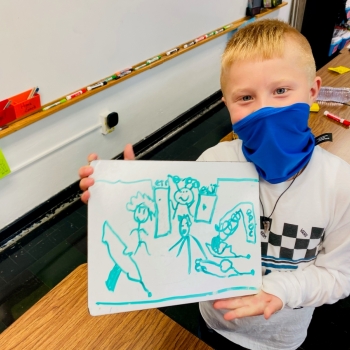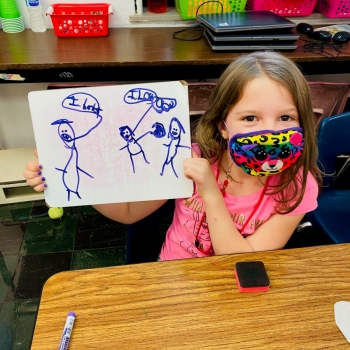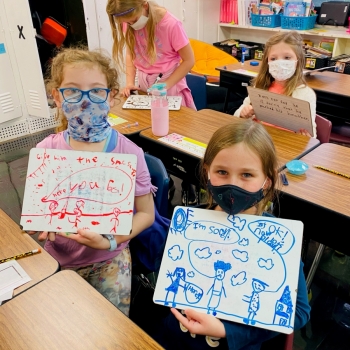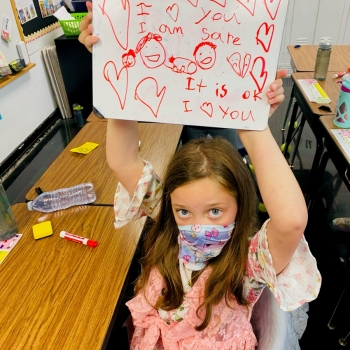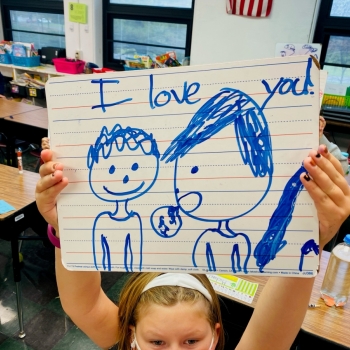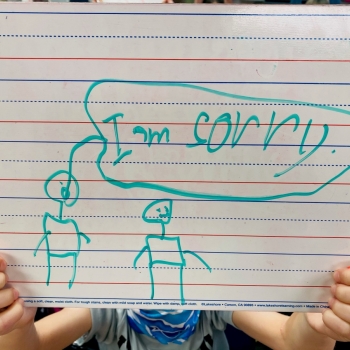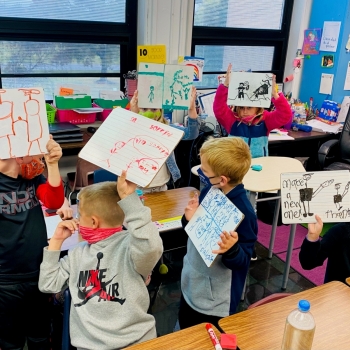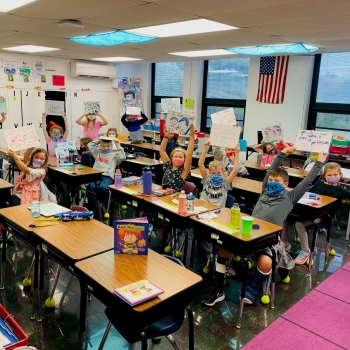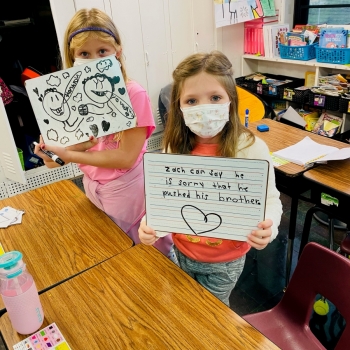Bringing Social Emotional Learning into the Classroom
2020 has shown all of us just how important mental health is to our success in life, at home, and at work/school. Recognizing that self-care is vital to mental health and wellness, Little Miami wanted to find a way to supporting teachers and staff in their journey towards emotional awareness. This need was fulfilled by hiring Mrs. Syndra Snelling- a Social Emotional Learning (SEL) Consultant contracted through the Montgomery County Educational Service Center.
In Mrs. Syndra Snelling’s first year with Little Miami, she has already made a huge impact! Hired to support the SEL needs of Little Miami teachers and staff, Mrs. Snelling has been welcomed into each and every Preschool- 6th Grade classroom with open arms. Since the beginning of the school year, she has educated each elementary classroom on the concept of “Upstairs and Downstairs Brain,” a Neurosequential Model of Education developed by Dr. Bruce Perry.
Using the Upstairs and Downstairs Brain model, Mrs. Snelling explains how emotions affect our brain and how we can use the strategy of deep breathing to self-regulate. The Upstairs Brain is our thinking brain. When we are in our Upstairs Brain, our bodies have positive emotions and feel good (regulated), we have empathy for others, can be kind and play respectfully, can control our bodies, and make responsible decisions. When we are in our Downstairs Brain, our bodies don’t feel good (dysregulated), our emotions have become too strong and we flip our lids (flight, fight, freeze). The goal is to recognize when our bodies start to not feel good (start to become dysregulated). This is when you can feel yourself start to go down your stairs. When your body starts to become dysregulated and not feel good anymore, take deep breaths and walk back up your stairs.
Mastering the skills of Upstairs & Downstairs Brain is all about teaching students, staff and teachers to understand their own emotions, enabling them to more effectively de-escalate tense situations with educated decisions, positive communication, and empathy.
This lesson has proven helpful in the classroom as teachers have learned techniques to refine their skills of student regulation, relationship building, and reasoning. Mrs. Snelling explains that in order to regulate a student’s behavior, the teacher must be regulated themselves- acknowledging their own emotions, triggering frustrations, and reactionary behaviors. In order to reason with a student, a relationship of trust and compassion must be foundational. One goal of the upstairs and downstairs lesson is to help teachers and staff understand that when they are regulated in their emotions and have a caring relationship with students, the students will feel that they can trust the teacher enough to calm down and return to learning.
Mrs. Snelling’s eventual goal is to provide these social-emotional wellness resources to the entire Little Miami Community. We are so grateful to have you Mrs. Snelling and thank you for what you do for our teachers, staff and students!
If you are interested in learning more about the Upstairs/Downstairs Brain, please click HERE.

